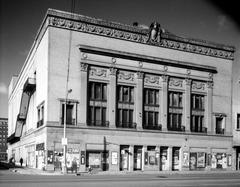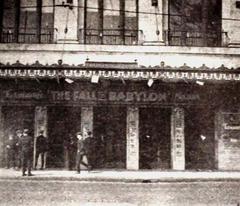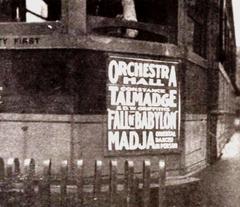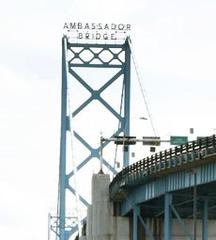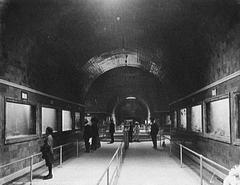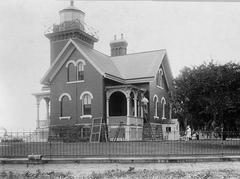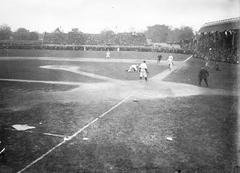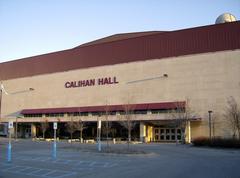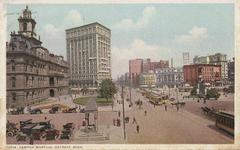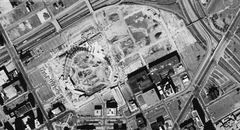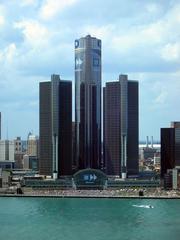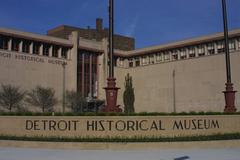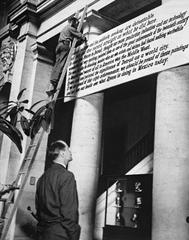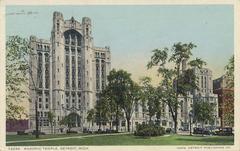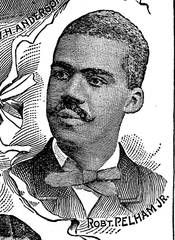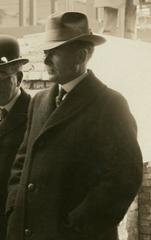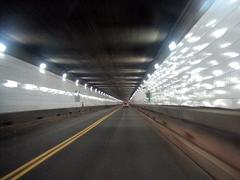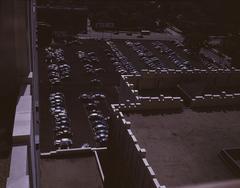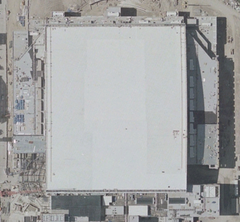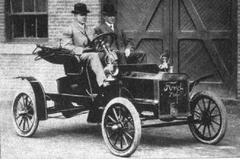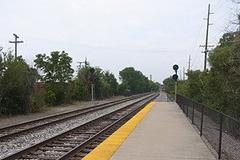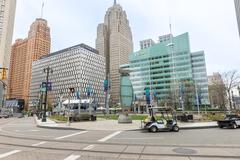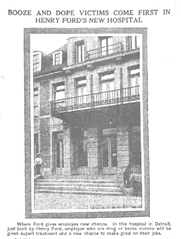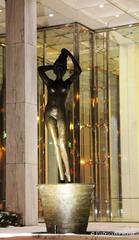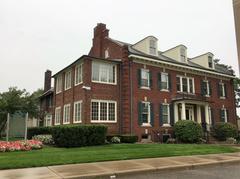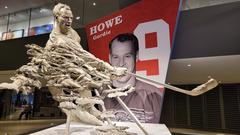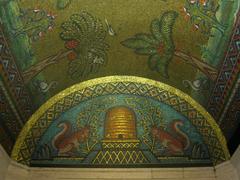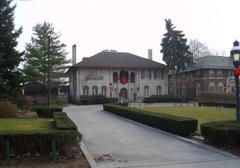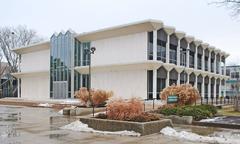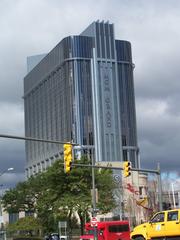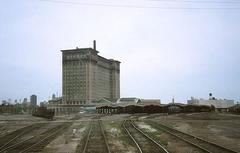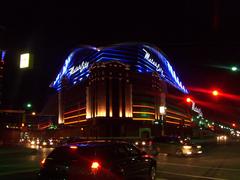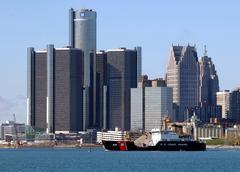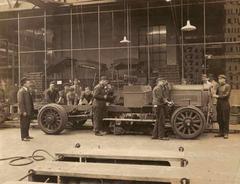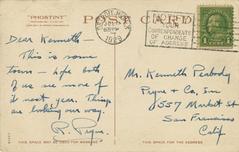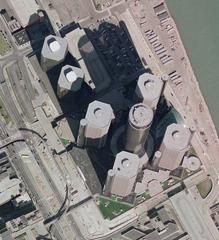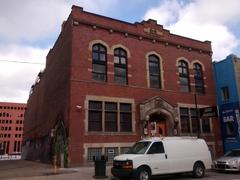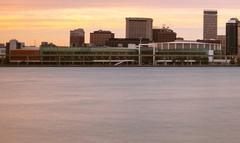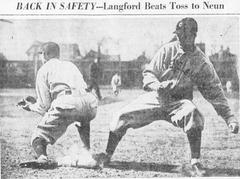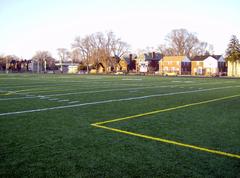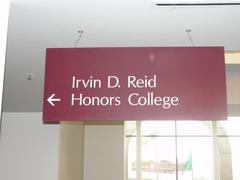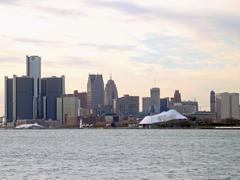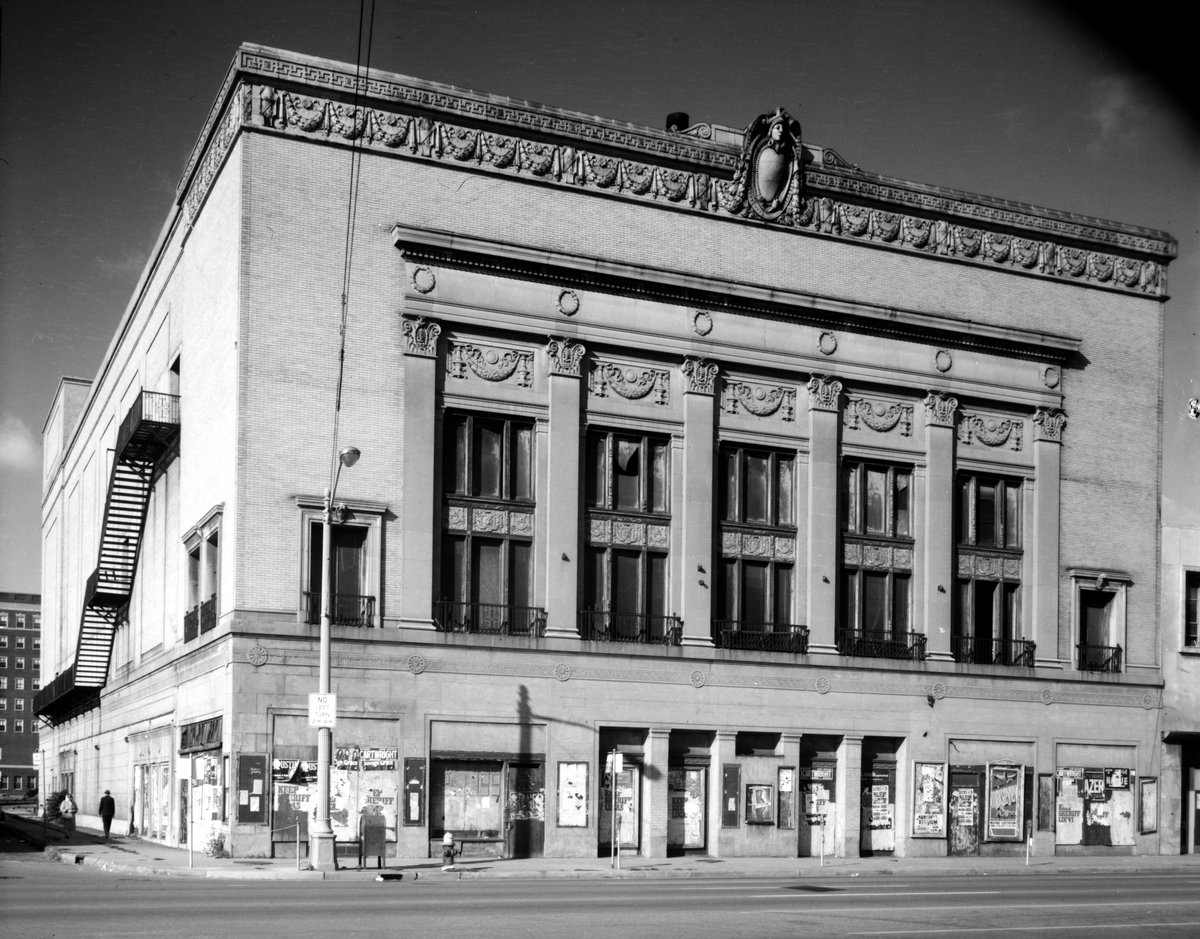
Orchestra Hall Detroit: Visiting Hours, Tickets, History, and Visitor Guide
Date: 15/06/2025
Introduction
Orchestra Hall Detroit stands as a beacon of Detroit’s musical and cultural heritage. Since its opening in 1919, this historic venue has been celebrated for its exceptional acoustics, architectural grandeur, and vital role in the city’s artistic evolution. As the home of the Detroit Symphony Orchestra (DSO), Orchestra Hall has hosted legendary performers, survived near-demolition, and undergone significant restoration—making it one of the nation’s most treasured concert venues. Whether you’re planning to attend a performance, take a guided tour, or simply explore Detroit’s rich history, this guide provides all the essential information, from visiting hours and ticketing to accessibility, architecture, and nearby attractions.
Table of Contents
- Introduction
- Historical Overview
- Visiting Orchestra Hall Detroit
- Architectural Significance
- Visitor Tips and FAQs
- Conclusion
Historical Overview
Origins and Construction (1919)
Orchestra Hall was born from Detroit’s rapid growth and cultural ambition in the early 20th century. The DSO, established in 1914, initially performed in the old Detroit Opera House. Its transformation began in 1918, when pianist and conductor Ossip Gabrilowitsch agreed to lead the orchestra under one condition: the construction of a dedicated concert hall. Thanks to Detroit’s economic boom, famed theater architect C. Howard Crane was commissioned, and construction began in June 1919. Remarkably, the hall was completed in just six months, opening its doors with a DSO performance on October 23, 1919 (Historic Detroit; Wikipedia).
The Gabrilowitsch Era (1919–1936)
Under Gabrilowitsch’s leadership, Orchestra Hall thrived. It hosted hundreds of Detroit, American, and world musical premieres, establishing itself as a premier cultural destination. The hall’s first decades saw appearances by global luminaries including Enrico Caruso, Pablo Casals, George Gershwin, and Sergei Rachmaninoff. In 1924, the hall received a monumental Casavant Frères organ, further enhancing its musical prestige (Historic Structures; Wikipedia).
The Great Depression and Transition (1936–1941)
The Great Depression deeply affected the DSO, and after Gabrilowitsch’s passing in 1936, financial difficulties forced the orchestra to leave Orchestra Hall in 1939. The building then stood vacant as Detroit’s fortunes shifted (Historic Detroit).
Paradise Theatre and Jazz Legacy (1941–1951)
Reimagined as the Paradise Theatre in 1941, the venue became Detroit’s premier jazz stage, hosting icons such as Duke Ellington, Ella Fitzgerald, Billie Holiday, and Louis Armstrong. For a decade, it was the heart of Detroit’s jazz and African American cultural life. This era ended in 1951 as tastes changed and the theatre closed, after which the building was sporadically used for religious services and recordings (Historic Structures; Wikipedia).
Decline and Restoration (1951–Present)
After years of neglect and threats of demolition in the 1960s and 1970s, Orchestra Hall was saved by a passionate community campaign. It was listed on the National Register of Historic Places in 1971, and a decades-long restoration culminated in the DSO’s triumphant return in 1989. Today, Orchestra Hall anchors the Max M. and Marjorie S. Fisher Music Center, serving as one of the world’s leading concert venues (Detroit Historical Society; DSO History).
Visiting Orchestra Hall Detroit
Visiting Hours
- Box Office: Monday–Friday, 10:00 AM to 6:00 PM; extended on performance days.
- Hall Access: Open during scheduled concerts, special events, and pre-arranged tours. Check the DSO website for up-to-date hours and schedules.
Tickets and Pricing
- Purchase Tickets: Online via the DSO ticketing page, by phone at (313) 576-5111, or at the box office.
- Pricing: Varies by performance, event type, and seating section. Discounts for students, seniors, and groups are often available.
- Advance Booking: Recommended, especially for popular events which may sell out (Bandsintown).
Accessibility
- Wheelchair Seating: Available throughout the venue.
- Assistive Listening Devices: Offered upon request.
- Restrooms and Elevators: Fully accessible.
- Contact: Visitors with specific needs should contact the box office in advance (DSO Accessibility).
Guided Tours
- Availability: Offered by appointment, providing insights into the hall’s history, architecture, and acoustics.
- Booking: Contact the DSO for tour schedules and details.
Special Events and Festivals
Orchestra Hall hosts a diverse array of events, including classical and pops concerts, jazz series, family-friendly programs, and community festivals. Seasonal highlights often feature guest artists and collaborative performances (DSO.org).
Getting There and Parking
- Location: 3711 Woodward Avenue, Detroit, MI 48201.
- Transit: Accessible via QLINE streetcar and multiple bus lines; ride-shares and taxis are widely available.
- Parking: Several garages and lots are located nearby. Arrive early to secure parking and enjoy local amenities (Bandsintown).
Nearby Attractions
- Culture: Detroit Institute of Arts, Charles H. Wright Museum of African American History, Fox Theatre.
- Dining: Midtown offers a variety of restaurants, from casual to fine dining.
- Other Venues: Explore Little Caesars Arena, The Fillmore Detroit, and Saint Andrew’s Hall for more live music (Classic Rock History).
Architectural Significance
Exterior Design
Orchestra Hall’s exterior exemplifies Beaux-Arts elegance. The façade features limestone and pale yellow brick, monumental pilasters, a crowned entablature adorned with swags and candelabra, and a dramatic cartouche with a carved female head. These elements project grandeur and reflect the building’s cultural prominence (SAH Archipedia).
Interior Features
The lobby welcomes visitors with gold, silver, and ivory trimmings, while the nearly rectangular auditorium boasts a horseshoe mezzanine and balcony. These design choices enhance both the visual spectacle and the intimacy between performers and audience (SAH Archipedia).
Acoustical Innovations
Designed by C. Howard Crane, Orchestra Hall’s “shoebox” shape, high ceilings, and strategic use of hard surfaces create world-renowned acoustics. The sound clarity is such that even subtle stage noises are audible from the farthest seats, drawing praise from musicians and audiences alike (Detroit Urbex; Cool Hunting).
Visitor Tips and FAQs
Frequently Asked Questions
Q: What are Orchestra Hall’s visiting hours?
A: The box office is open Monday–Friday, 10:00 AM–6:00 PM, and two hours before performances. The venue is open during events and tours.
Q: How can I buy tickets?
A: Online via the DSO website, by phone, or at the box office.
Q: Is Orchestra Hall accessible?
A: Yes, with wheelchair seating, elevators, and assistive listening devices.
Q: Are guided tours offered?
A: Yes, by appointment. Contact the DSO for details.
Q: Can I take photos inside?
A: Photography is allowed in public areas before performances; it is typically restricted during concerts.
Q: What are some nearby attractions?
A: Detroit Institute of Arts, Fox Theatre, Comerica Park, and Midtown dining.
Additional Tips
- Arrive Early: Allow time to explore the lobby and surrounding area.
- Dress Code: Business casual or semi-formal is common; casual attire welcome at family events.
- Support the Arts: Consider donating or joining DSO membership programs (DSO.org).
Conclusion
Orchestra Hall Detroit is more than a concert venue—it is a living testament to Detroit’s cultural resilience, architectural splendor, and musical legacy. With outstanding acoustics, accessible facilities, and a rich calendar of events, it is an essential destination for locals and visitors alike. Whether you are a first-timer or a returning patron, Orchestra Hall promises an unforgettable experience.
Plan your visit today:
- Visit the Detroit Symphony Orchestra website for the latest event schedules and ticketing information.
- Download the Audiala app for concert alerts, guided tours, and insider tips.
- Explore nearby attractions to enrich your Detroit adventure.
References
- Historic Detroit
- Wikipedia
- Detroit Historical Society
- Historic Structures
- DSO History
- DSO Venue Rentals
- Cool Hunting
- Kiddle
- Bandsintown
- VisitingDetroit.com
- SAH Archipedia
- Detroit Urbex
- Classic Rock History
